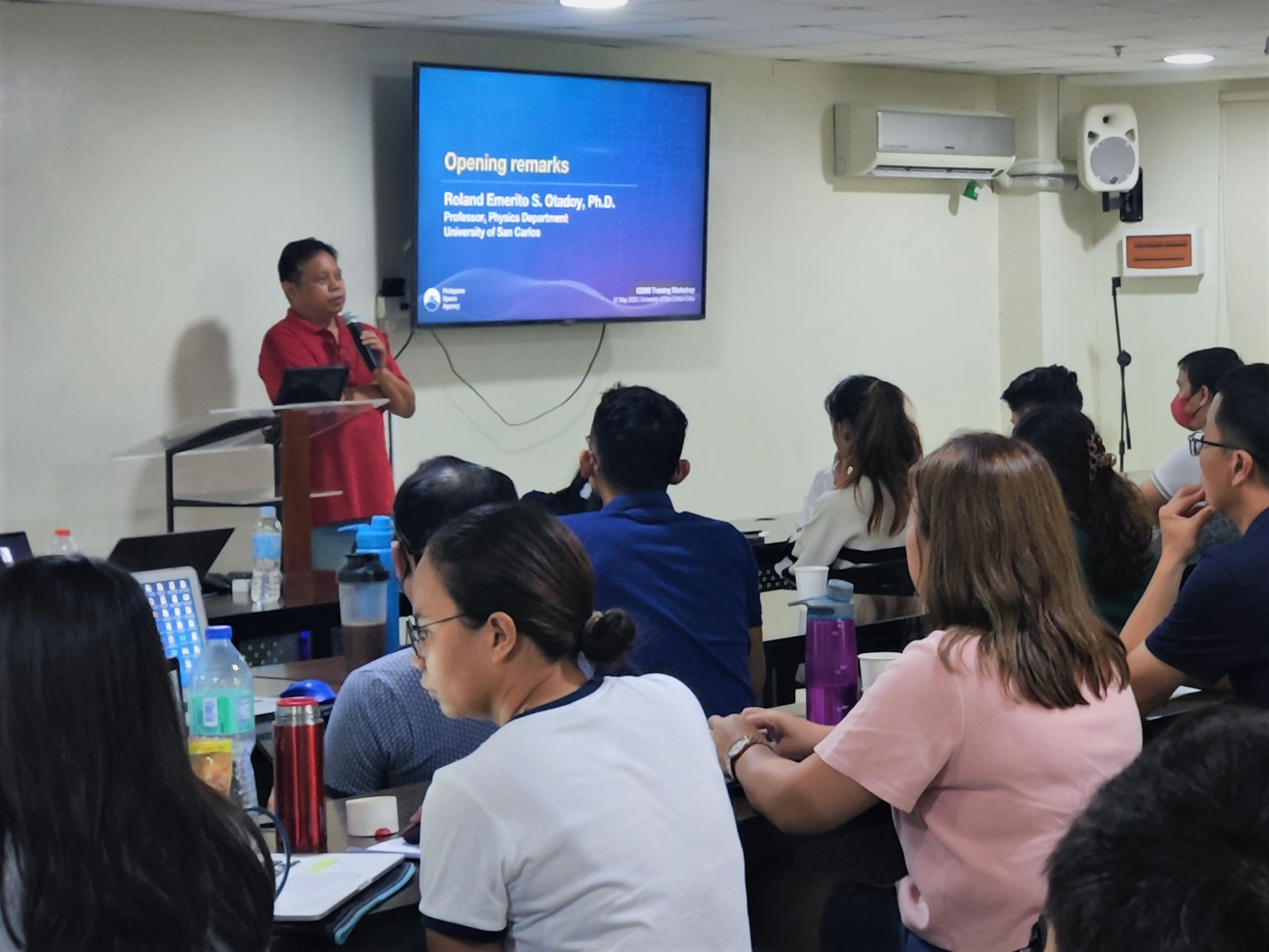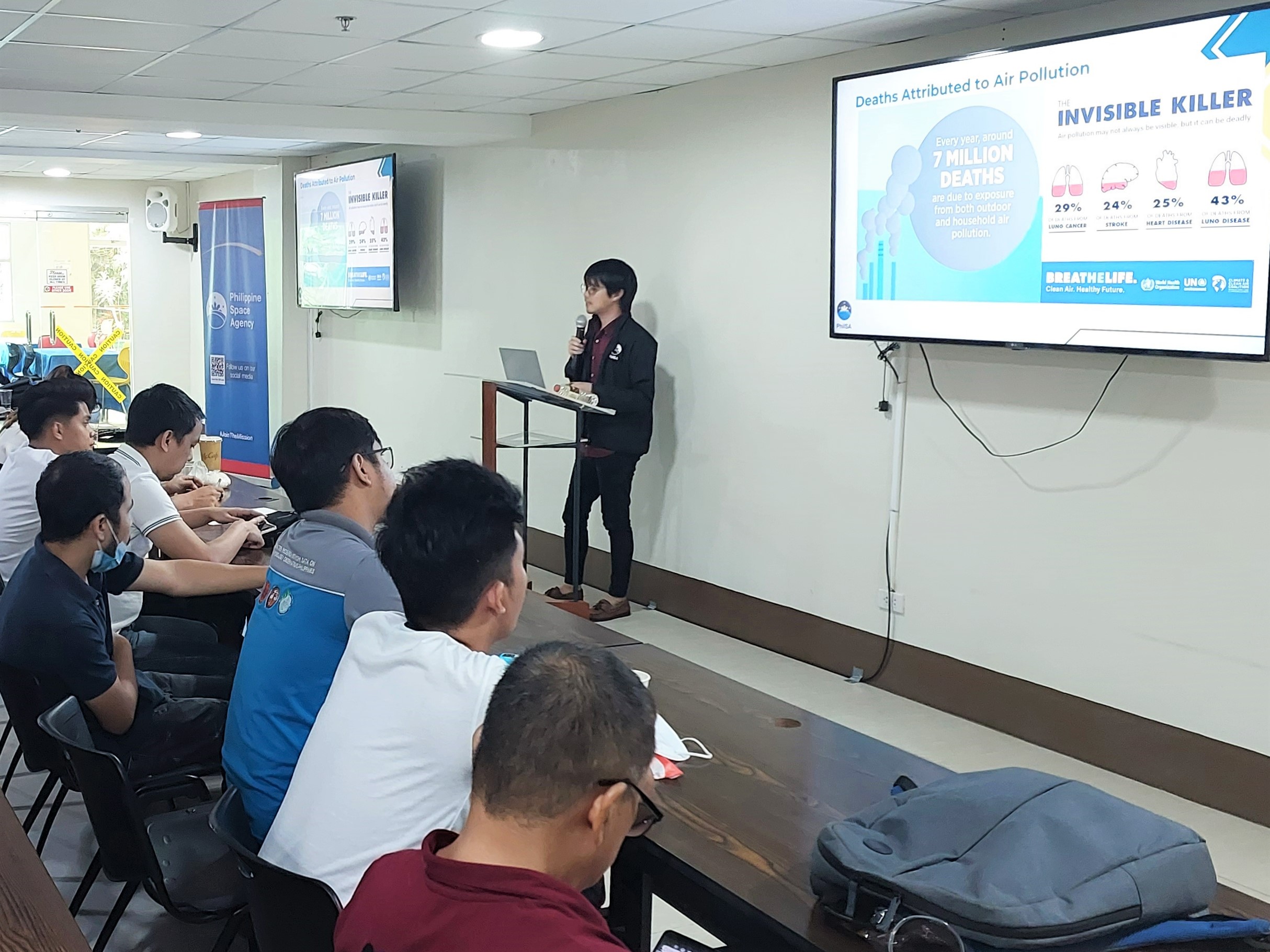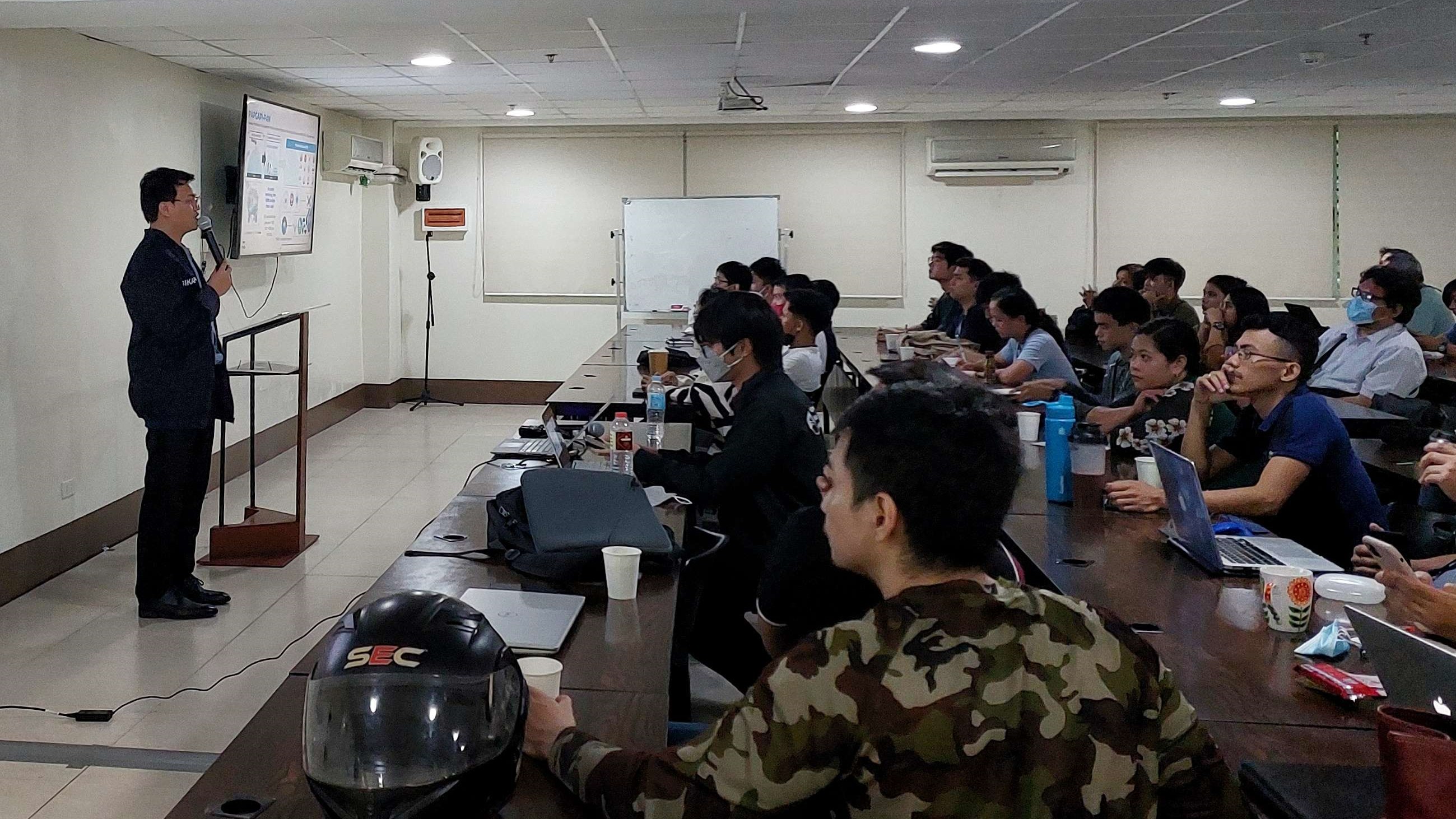Researchers from the Philippine Space Agency (PhilSA) conducted a training workshop on the utilization and applications of South Korea’s Geostationary Environment Monitoring Spectrometer (GEMS) satellite for air quality monitoring in the Philippines at the University of San Carlos-Talamban Campus (USC-TC), Cebu City on 31 May 2023. Over 70 faculty members, students, and university researchers involved in various science and engineering programs and projects in USC, University of the Philippines (UP) Cebu, Cebu Institute of Technology-University (CIT-U), Cebu Technological University (CTU), and Bohol Island State University (BISU) participated in the training.
The one-day workshop focused on the access and application of GEMS data products for air quality monitoring, which include NO₂, SO₂, O₃, and aerosol readings. This provided the participants with essential knowledge and skills to effectively monitor air quality in their localities.

Dr. Roland Emerito S. Otadoy, USC physics professor delivers the opening remarks. USC is one of the partners for the GEMS Training Workshop in Cebu (31 May 2023, University of San Carlos-Talamban Campus, Cebu City)
Building on the workshop held in March for academic institutions and government agencies in Metro Manila, the Cebu workshop echoed the learnings from the training on GEMS applications for air pollution received by PhilSA researchers in South Korea in June and August 2022.

Arlo Jayson Sabuito of the PhilSA Space Data Mobilization and Applications Division demonstrates how to map NO₂ and SO₂ using GEMS data (31 May 2023, University of San Carlos-Talamban Campus, Cebu City)
The participants were also given an overview on the Pandora data processing. Pandora instruments are ground-based spectrometers that measure and verify data that GEMS observes in space. USC-TC is one of the four proposed sites around the Philippines for the installation of the Pandora instrument.
Towards the conclusion of the workshop, the participants exchanged ideas on how to utilize data from GEMS and other satellites in local research and other potential use cases.
The workshop is part of the Pan-Asia Partnership for Geospatial Air Pollution Information Project and the Pandora Asia Network (PAPGAPI-PAN) Philippines Project, which envisions improving the country’s air quality though collaborative efforts and utilization of innovative technologies.
About PAPGAPI-PAN Philippines
The Pan-Asia Partnership for Geospatial Air Pollution Information Project and the Pandora Asia Network Philippines Project is a technology transfer, data-sharing, capacity-building, and international cooperation initiative on air pollution. The project is possible with the support of the Republic of Korea (ROK) through the Korea International Cooperation Agency (KOICA) and the National Institute of Environmental Research (NIER). The United Nations Economic and Social Commission for Asia and Pacific (UNESCAP) and the Korea Environment Corporation (KECO) also serve as implementing partners. In the Philippines, the Philippine Space Agency (PhilSA) will serve as the lead executing agency for PAPGAPI-PAN.
PAPGAPI-PAN will monitor the condition of air quality in participating countries using data from the Geostationary Environment Monitoring Spectrometer (GEMS) aboard the GEO-KOMPSAT-2B Satellite and a network of ground-based remote sensing instruments for data validation called Pandora. Pandora, a Fiducial Reference Measurement (FRM), is a compact, modestly priced sun/sky/lunar passive UV/VIS grating spectrometer. It will monitor air quality and atmospheric composition in the region where it is installed, and it will also serve as a tool to monitor satellite data quality for GEMS and LEO (Low Earth Orbit) missions. Four (4) Pandora instruments will be deployed in the Philippines and will be part of the Pandora Asia Network (PAN).




